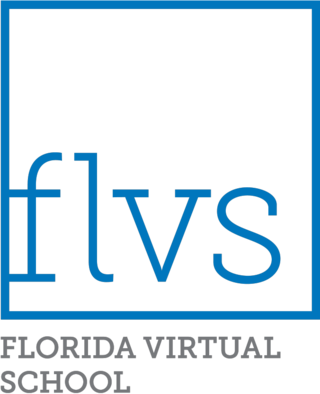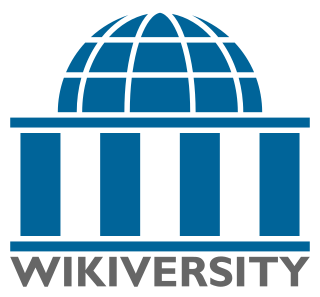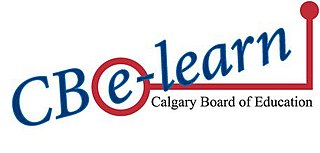
Distance education, also known as distance learning, is the education of students who may not always be physically present at school, or where the learner and the teacher are separated in both time and distance. Traditionally, this usually involved correspondence courses wherein the student corresponded with the school via mail. Distance education is a technology-mediated modality and has evolved with the evolution of technologies such as video conferencing, TV, and the Internet. Today, it usually involves online education and the learning is usually mediated by some form of technology. A distance learning program can either be completely a remote learning, or a combination of both online learning and traditional offline classroom instruction. Other modalities include distance learning with complementary virtual environment or teaching in virtual environment (e-learning).

Service-learning is an educational approach that combines learning objectives with community service in order to provide a pragmatic, progressive learning experience while meeting societal needs.
Blended learning, also known as technology-mediated instruction, web-enhanced instruction, or mixed-mode instruction, is an approach to education that combines online educational materials and opportunities for interaction online with physical place-based classroom methods.

Open educational resources (OER) are teaching, learning, and research materials intentionally created and licensed to be free for the end user to own, share, and in most cases, modify. The term "OER" describes publicly accessible materials and resources for any user to use, re-mix, improve, and redistribute under some licenses. These are designed to reduce accessibility barriers by implementing best practices in teaching and to be adapted for local unique contexts.

An online school teaches students entirely or primarily online or through the Internet. It has been defined as "education that uses one or more technologies to deliver instruction to students who are separated from the instructor and to support regular and substantive interaction between the students. Online education exists all around the world and is used for all levels of education. This type of learning enables the individuals to earn transferable credits, take recognized examinations, and advance to the next level of education over the Internet.
Educational technology is the combined use of computer hardware, software, and educational theory and practice to facilitate learning. When referred to with its abbreviation, edtech, it often refers to the industry of companies that create educational technology.

Western Governors University (WGU) is a private, non-profit online university based in Millcreek, Utah. The university uses an online competency-based learning model. Degrees awarded by WGU are accredited by the NWCCU, ACBSP, CAEP, CAHIIM, and CCNE. The university was founded by 19 U.S. governors in 1997 after the idea was formulated at a 1995 meeting of the Western Governors Association to expand education offerings to the internet.

Florida Virtual School (FLVS) was founded in 1997 as the first statewide Internet-based public high school in the United States. In 2000, FLVS was established as an independent educational entity by the Florida Legislature. Recognized as its own district within the state, it provides online instruction to Florida students in Kindergarten through 12th grade. As part of the Florida public education system, the online school serves students in all 67 Florida districts. Operating as a public school offering both individual online courses and full-time enrollment options, the school's funding is tied directly to student performance.

West Shore Community College is a public community college in Scottville, Michigan.
OpenCourseWare (OCW) are course lessons created at universities and published for free via the Internet. OCW projects first appeared in the late 1990s, and after gaining traction in Europe and then the United States have become a worldwide means of delivering educational content.
Connections Academy, a for-profit corporate provider of online school products and services to virtual schools for grades K-12, including full-time online schools with the name Connections Academy, in the United States and International Connections Academy for students residing abroad. Based in Columbia, Maryland, Connections Academy is part of Pearson's Online and Blended Learning K-12 group. Online schools are an alternative to traditional public schools. Similar to charter schools, they are subsidized by the State. Although they contract with many non-profit schools, they are a for-profit corporation.

ANGEL Learning, Inc. was a privately held educational software company specializing in eLearning. Its main products are the ANGEL Learning Management Suite (LMS), ANGEL ePortfolio, and services offerings. In May 2009, it was acquired by Blackboard Inc.
Stride, Inc. is a for-profit education company that provides online and blended education programs. Stride, Inc. is an education management organization (EMO) that provides online education designed as an alternative to traditional "brick and mortar" education for public school students from kindergarten to 12th grade, as well as career learning programs. As of 2012, publicly traded Stride, Inc. was the largest EMO in terms of enrollment.

Wikiversity is a Wikimedia Foundation project that supports learning communities, their learning materials, and resulting activities. It differs from Wikipedia in that it offers tutorials and other materials for the fostering of learning, rather than an encyclopedia. It is available in many languages.
The Mississippi Community College Board (MCCB), formerly the Mississippi State Board for Community and Junior Colleges (SBCJC), is a statutory coordinating board tasked with oversight of the public community and junior colleges of the state of Mississippi.

A virtual learning environment (VLE) is a system that creates an environment designed to facilitate teachers' management of educational courses for their students, especially a system using computer hardware and software, which involves distance learning. In North America, a virtual learning environment is often referred to as a "learning management system" (LMS).

CBe-learn is a public elementary, junior high and high school located in Calgary, Alberta, Canada. The school is under the jurisdiction of the Calgary Board of Education. The school is currently located within the Career and Technology Centre.
A virtual learning environment (VLE) in educational technology is a web-based platform for the digital aspects of courses of study, usually within educational institutions. They present resources, activities, and interactions within a course structure and provide for the different stages of assessment. VLEs also usually report on participation and have some level of integration with other institutional systems. In North America, VLE's are often referred to as Learning Management Systems (LMS).
This outline of open educational resources provides a way of navigating concepts and topics in relation to the open educational resources (OER) movement.










